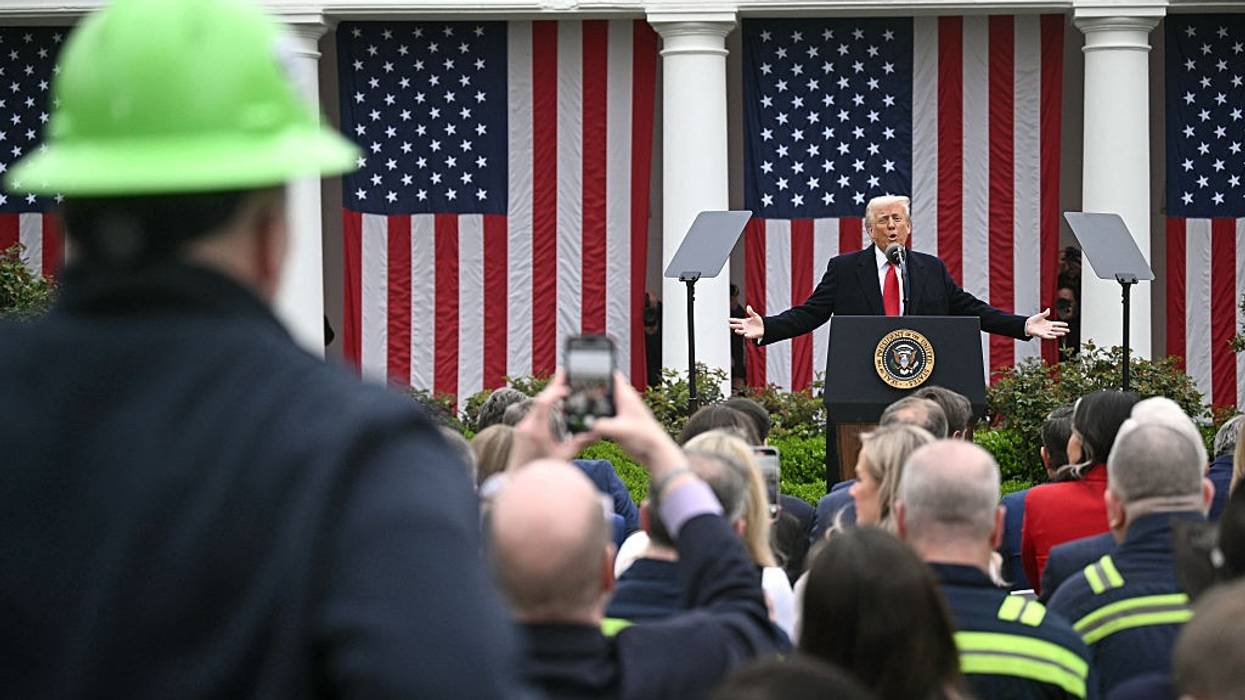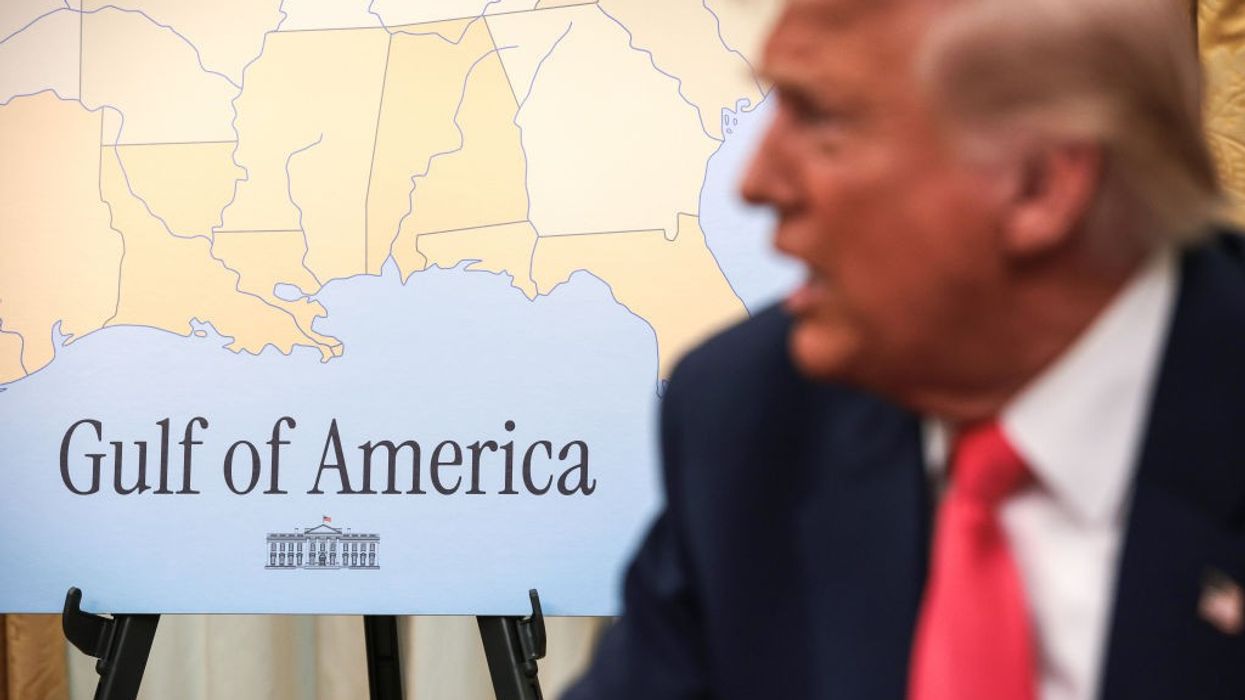The Democrats? They sent billionaire Mark Cuban out to the media to complain that the tariffs were “insane.”
But threatening tariffs did not feel insane to the Deere workers who were about to lose their jobs. Nor did they feel insane to the millions of other workers who had lost their jobs due to “free trade” deals like NAFTA.
The Democrats now have a chance to turn the tables—but, alas, they probably won’t.
The Democrats stumbled into the Trump’s tariff trap and provided many workers with yet another reason to abandon a party that had failed to say anything at all about the needless job destruction caused by overt corporate greed.
After Trump won the presidency last November, I was sure he would set more tariff traps, provoking the Democrats to reflexively react as corporate shills.
But along the way something funny happened. Trump fell into his own tariff trap, and his public support has fallen somewhat. The Democrats now have a chance to turn the tables—but, alas, they probably won’t.
Why Does Trump Love Tariffs?
Even the most ardent MAGA apologist knows that Trump has dictatorial impulses. He wants to play Brando in “The Godfather” and make you an offer you can’t refuse.
But playing Don Corleone in domestic affairs doesn’t come easily. Trump can flood the zone with executive orders, but the courts are still functioning and often enforce the law. Even a pliable Congress has rules which can get in the way of the legislative results Trump is demanding.
But there are two areas where Trump really can act unilaterally—foreign affairs and tariff policy.
As president, Trump is free to bully Ukraine, kiss up to Putin, threaten to annex Greenland, Panama, and even Canada. No one in the U.S. can really stop him. He doesn’t need the blessing of Congress unless he wants a new treaty, which he doesn’t.
Similarly, he can use Section 301 of the Trade Act of 1974, which authorizes the U.S. Trade Representative, a Trump toady, to impose tariffs in response to unfair trade practices, which are not defined.
There is no way a full-scale trade war with Canada will do anything but shatter jobs on both sides of the border, while raising prices as well.
Tariffs are a shiny new toy for Trump to play with. He can turn tariffs on and off, making entire countries jump to his tune. Each day he comes up with new reasons to justify them—fentanyl, immigrants, unfair subsidies, too much control of domestic banking (God forbid!). But these are just excuses for having fun by intimidating entire countries.
Trump can also combine his control of foreign policy with tariffs, as he is gleefully doing with Canada. What fun it is to threaten to take down the Canadian economy with tariffs while bullying them into becoming the 51st state. Clearly Trump wants to flex his dictatorial muscles, even as his real one’s sag with age.
But by playing dictator, he has abdicated the targeted use of tariffs to protect jobs. There is no way a full-scale trade war with Canada will do anything but shatter jobs on both sides of the border, while raising prices as well. Why? Because corporations like John Deere are not fleeing to Canada to find cheaper labor.
As a result, a tariff war with Canada is likely to kiss goodbye as many U.S. jobs as are protected. But Trump doesn’t seem to care because he’s all in on making Canada sweat. Damn the jobs! Damn inflation! He’s simply in love with his unilateral powers, which no one else in the world has. That’s a high that beats fentanyl.
The Trump Trap of Stagflation
Trump may not know it, but he is playing with fire. Tariffs are certain to raise U.S. prices. Why? Because when U.S. corporations see that their competition from Canada faces price increases caused by the 25 percent tariff, the companies will raise their own prices, especially in key industries with only a handful of large competitors.
A tariff war with Canada is likely to kiss goodbye as many U.S. jobs as are protected. But Trump doesn’t seem to care because he’s all in on making Canada sweat. Damn the jobs! Damn inflation! He’s simply in love with his unilateral powers...
Furthermore, by Trump turning his tariff toy on and off, he is causing economic uncertainty. That uncertainty has already had a drastic impact on the stock market.
But it will get much worse if corporations hold back on investment decisions until Trump stops fiddling with his toy.
It’s a very big deal when corporations delay investment decisions. Slower investment rollouts can lead to an economic slowdown and even a recession. And such a downturn can quickly get out of hand, because the Wall Steet derivative games, the kind of which that caused the 2008 crash, are up and running again, bigger than ever.
So, here’s the trap. Tariffs will cause inflation, forcing the Federal Reserve to increase interest rates to combat price increases. And higher interest rates will further reduce economic activity, leading to more unemployment. The Fed then will be unable to boost employment, because that requires decreasing interest rates, which are likely to further fuel inflation.
Bingo, stagflation. I wonder how Trump will feel if morphs into Jimmy Carter?
What Should the Democrats Do?
James Carville is telling the Democrats to do nothing. Play dead and let the guy implode.
But that’s a very dangerous game. Even with all the chaos Trump still has favorability ratings close to 50 percent. His supporters see him taking action, it’s why they voted for him, and they will give him time to make his plans work. Yes, there are protests, but they’re nothing like in Trump’s first term. The danger is, if the Democrats give him uncontested time and space, Trump might find a way to escape from his trap.
Instead, the Democrats should take a page from Trump and put job protection on the top of their agenda. As tariffs bite and cause job destruction, the Democrats should show up and support those laid-off workers. Instead of calling tariffs “insane,” they should call them job-killing tariffs. And as prices rise, they can blame Trump for that as well.
I wonder how Trump will feel if morphs into Jimmy Carter?
More importantly, they should go after any company that receives taxpayer money and is laying off taxpayers. They should slam stock buybacks that enrich Wall Street wealth extractors and CEOs. They should make it perfectly clear that protecting jobs from corporate greed is the number one priority of the Democratic Party.
Will they do this? Dream on.
There is little indication that the Democrats are willing to upset their Wall Street backers by interfering with private sector layoff decisions and stock buybacks. The Democrats are once again abdicating the jobs terrain to Trump, hoping instead that his tariff toy will blow up in his dictatorial hands.
Maybe it will, or maybe working people will see that the Democrats still don’t give a damn about their job security. At least Trump is trying, they may say.
Until the Democrats offer a compelling working-class vision, those living paycheck to paycheck have reasons to stick with Trump who, at the very least, has buried the free-trade mantra that working people know has destroyed so many jobs and damaged their communities.




